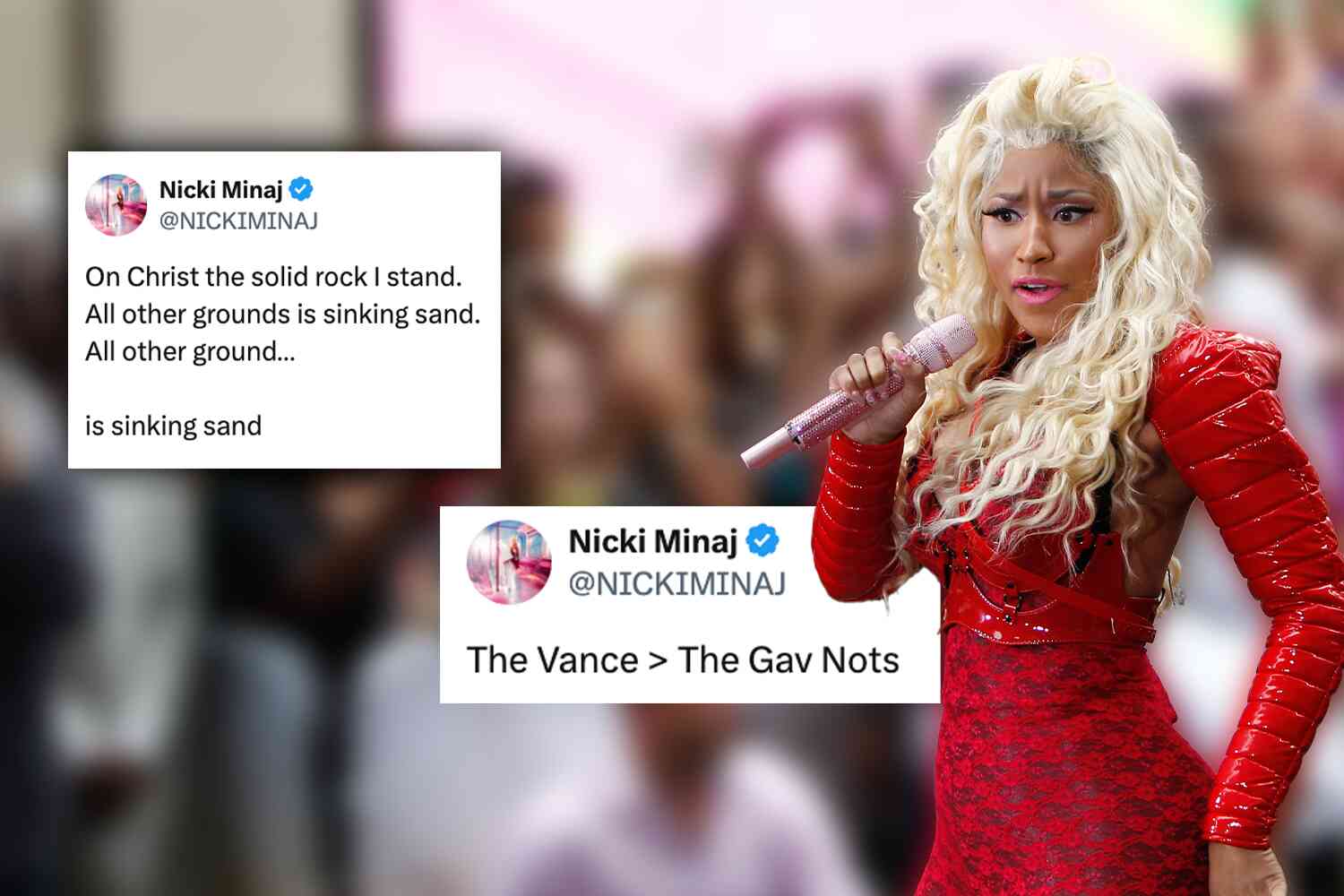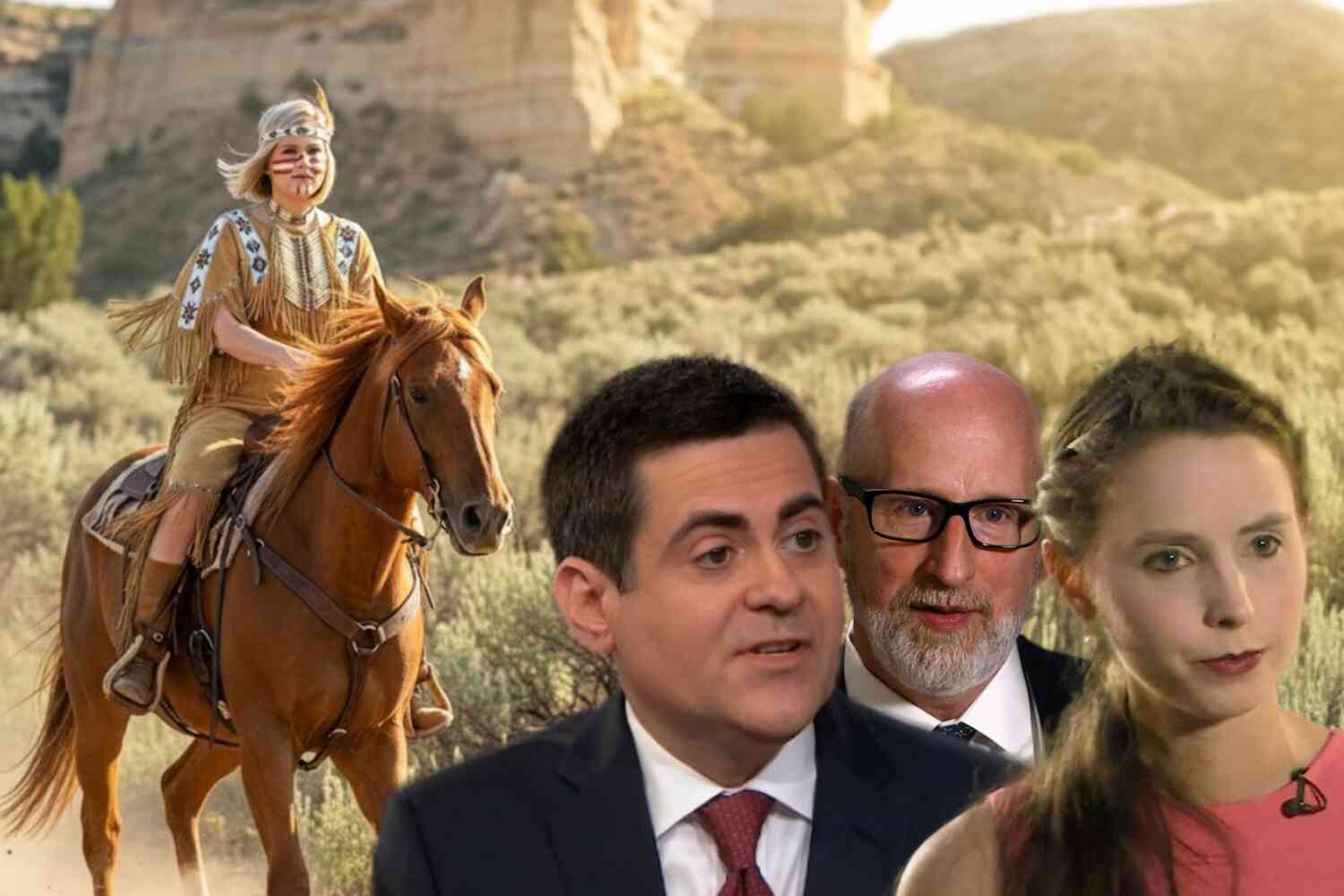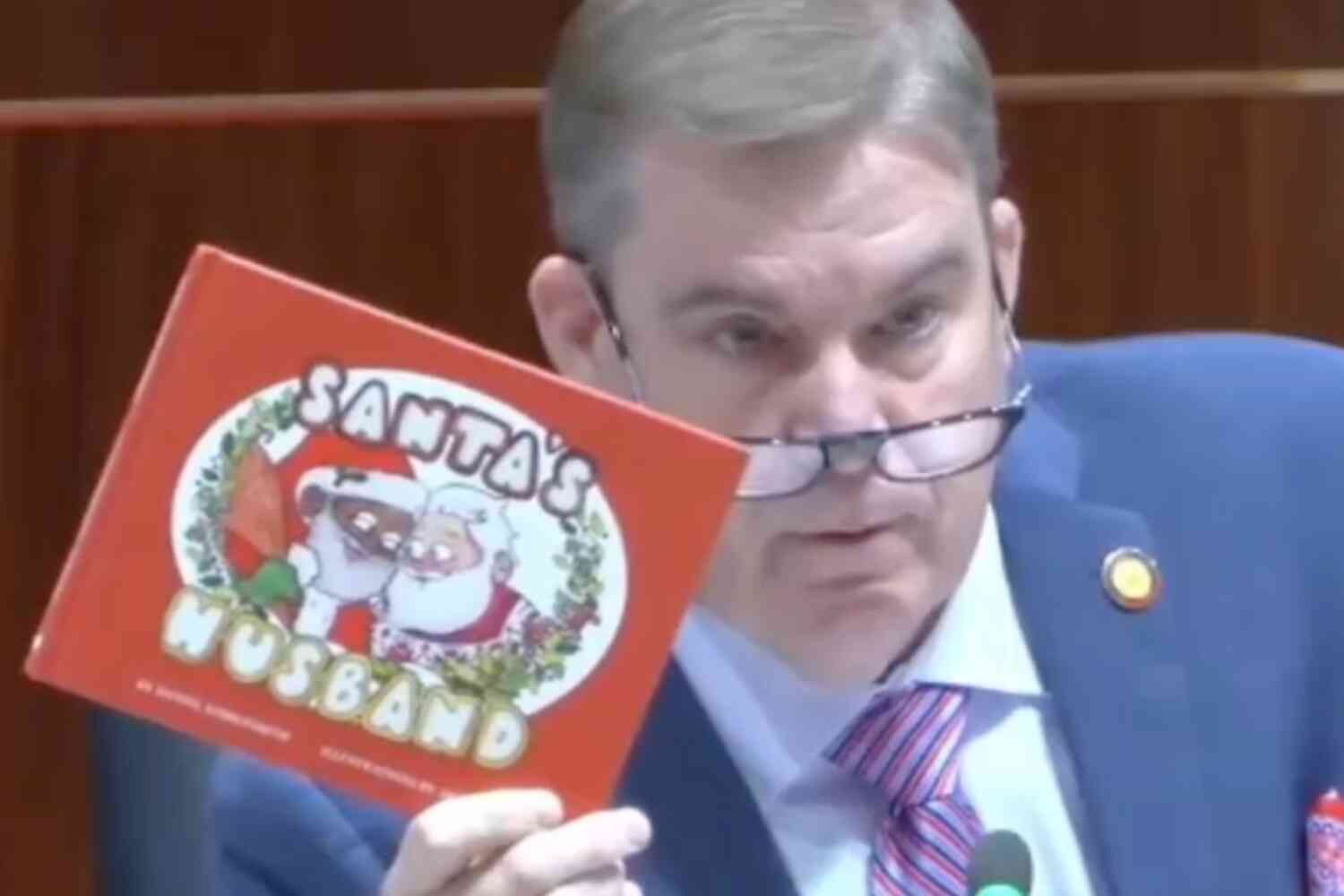I have a little rule of thumb: When the headline asks a question, the answer is "yes."
The use of certain words requires education, knowledge and the foresight to understand when they should – or shouldn't – come out of your mouth.
Or, to paraphrase Will Smith:
"Keep my totally common greeting out of your flowerbedding mouth."
But okay, let's go with it.
Who do we have that might embody that "education, knowledge, and foresight" necessary to utter these forbidden words?
Why, author David Oliver, an "entertainment, lifestyle, and wellness reporter at USA TODAY covering diversity and inclusion," of course.
(Let that marinate for a moment.)
An entertainment, lifestyle and wellness reporter whose recent pieces have included, "Will going on vacation together ruin your relationship?," and "Khloé Kardashian shares rare photo of her baby boy: How the stars celebrated Christmas" thought it appropriate that he lecture you about the education, knowledge, and foresight required to use really common words to say hello.
On the surface, simple greetings and phrases from other races and cultures may seem fine to sprinkle into our vernacular. Inclusive even.
On the surface. Also below the surface.
Pretty much all the surfaces.
But that's not what Oliver is here for. No, we can't enjoy the uniquely American experience of hashing together multiple cultures, tongues, and food in a crazy free-for-all that enriches life and brings us all a little closer together.
Instead, we need to find new, inventive, and totally unnecessary ways to divide and separate us!
Oliver does his best by noting that while you well-meaning but ignorant hayseeds may think it's inclusive to incorporate foreign language words into their daily speech, it's actually not.
Well, okay, it's kind of the definition of inclusive and would be perfectly fine in a culture that is inhabited by emotionally stable adults, but oh well!
And so off to the races.
But did you know that "aloha" doesn't just mean hello or goodbye?
This is how a third-grade teacher speaks to her students.
It's way less charming when you are addressing adults.
"It's a greeting or a farewell, but the meaning is deeper," says Maile Arvin, the director of Pacific Islands Studies at the University of Utah.
Actually, yes, I did know that, but more to the point, so what? "Hello" isn't purely a greeting either but can also indicate surprise. Do I risk offending an Englishman because I may not be familiar with the etymology of every word in the English language?
If you're not Hawaiian and you say it, it could come off as mockery. And that's just one word to think about.
"And that's just one word to think about."
Think of all the opportunities to be offended!
Good news, though, according to Nikki Lane, a cultural and linguistic anthropologist:
Of course, not all uses of language outside someone's culture are problematic.
Good to know, because seeing as I don't trace my lineage to England, these words I'm writing right now could be misconstrued as cultural appropriation.
Not to worry, there are a set of rules you can follow.
Intention matters most. Dropping "hola" or "shalom" to someone you know who speaks Spanish or Hebrew, for example, isn't something to worry about.
That goes in the "Do" category.
As for the "Don't" categories:
Actively don a fake, exaggerated accent and say those words? Therein lies the problem.
You mean like this?
You see, Nikki, while this might surprise you, we all know that already. That's why that skit was so funny. It's ridiculous.
And that was over thirty years ago.
Like saying "ni hao" to someone Asian American who isn't Chinese; this could be both othering and a microaggression.
Or it could be an honest mistake.
But hey, let's get everyone walking on eggshells around each other because that's a recipe for social cohesion and comity.
"What we need is a critical consciousness in our public around language," says Jeffrey McCune, director of the Frederick Douglass Institute of African & African-American Studies at the University of Rochester.
No. What we need is for people to act like grown-up adults and not frightened insecure children terrified that an errant word might be uttered without the speaker having taken at least one semester in Asian-Pacific studies.
"Language is too critical to our culture, that we can't just casually use language in ways that might offend and/or even harm, do harm to certain groups of people."
Sure we can. If you become so guarded in your language, so fearful of causing unintended offense, you can never have a real conversation.
Or are we saying casual conversations are now verboten?
(Apologies to my many German friends for any offense given.)
It's the larger cultural considerations around the use of these words that matter most.
No, it's what the words mean that matters most.
That's kind of how communication works. If I say "hola," that means "hello." That's all it means. If I say "aloha" upon seeing you, that also means hello. That's all the context you need. I swear, I'm not taking a position on colonization.
I'm being friendly.
This isn't difficult, unless you make it difficult.
(They're going to make it difficult.)
"I don't think the intention is necessarily to be offensive, or anything...
But by all means, let's everyone take it that way.
Fortunately ,we have a whole set of rules to follow.
How the petty tyrants love their rules.
Think before you speak
These action items will help keep your language in check.
The speech police want you to keep your language in check.
Make an effort to befriend people from other cultures. Step outside your comfort zone and 'talk to people who do not share our values or our experiences,' says Sunnie Rucker-Chang, associate professor at the Center for Slavic, East European and Eurasian Studies at The Ohio State University.
Says the woman who lives in the middle of Ohio.
Look Sunnie, I've been befriending people from other cultures for decades. This is a multi-cultural country so most people have done the same. Seriously, we mouth breathers aren't all out here peering through the blinds and polishing our Swastikas.
And we're the ones prejudging others?
Remember the weight of words. "Language is really about power," says Rucker-Chang.
Fun fact: Language is really about communication.
Seriously, you can't look at everything through a Marxist oppressor-oppressed construct.
Sometimes hello just means hello.
Avoid terms you don't know about. "Once you learn, you might decide you don't want to use the word because you see it as indexing certain things that have nothing to do with you, and which might reproduce ideas in which you are not interested in reproducing," Lane says.
Um, what? "you don't want to use the word because you see it as indexing certain things?"
I think you need to take Rucker-Chan's advice and "step outside your comfort zone and talk to people who do not share [y]our values or [y]our experiences," like maybe people who haven't spent their entire lives in academia.
Educate, educate, educate. Whether it's the history of colonialism in Hawaii or other significant historical facts, knowledge helps fight ignorance.
I love history, I educate myself all the time.
But I do not feel compelled to educate myself on the fraught history of every word of every language of every country that might escape my lips in order to avoid upsetting someone in part because that someone will surely find something to be offended about anyway.
This is not about inclusion, it's about separation.
Thanks for the advice, Oliver, but how about you stick with what you know.
I hear Britney Spears is up to her old hijinks...









